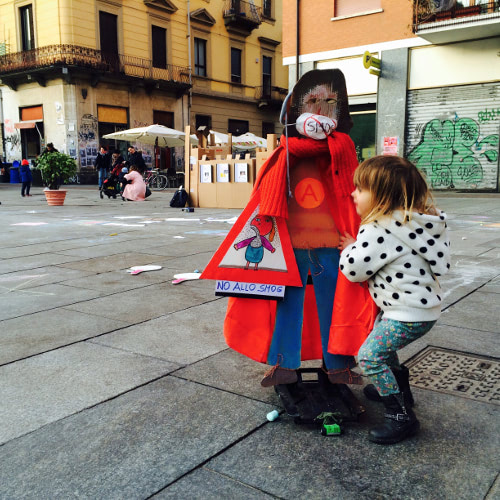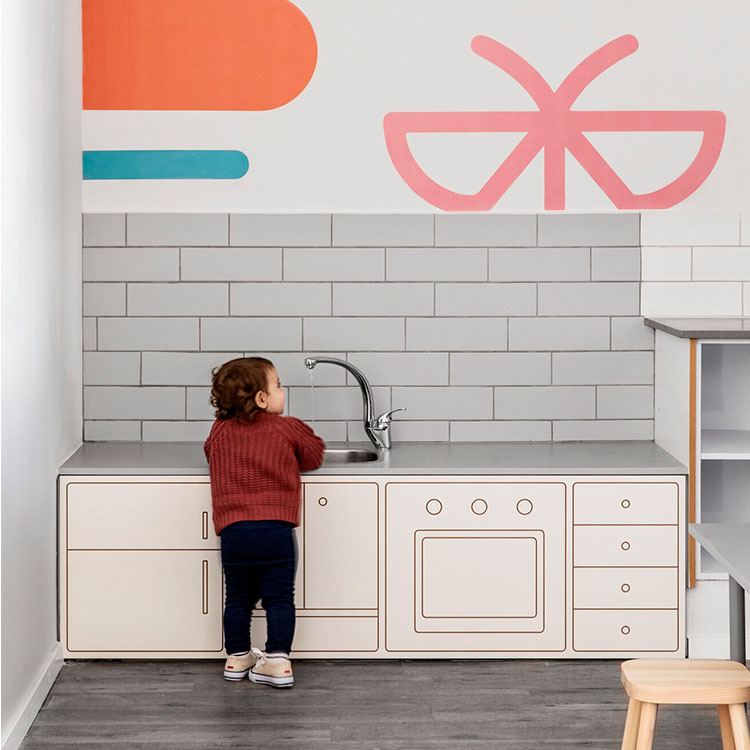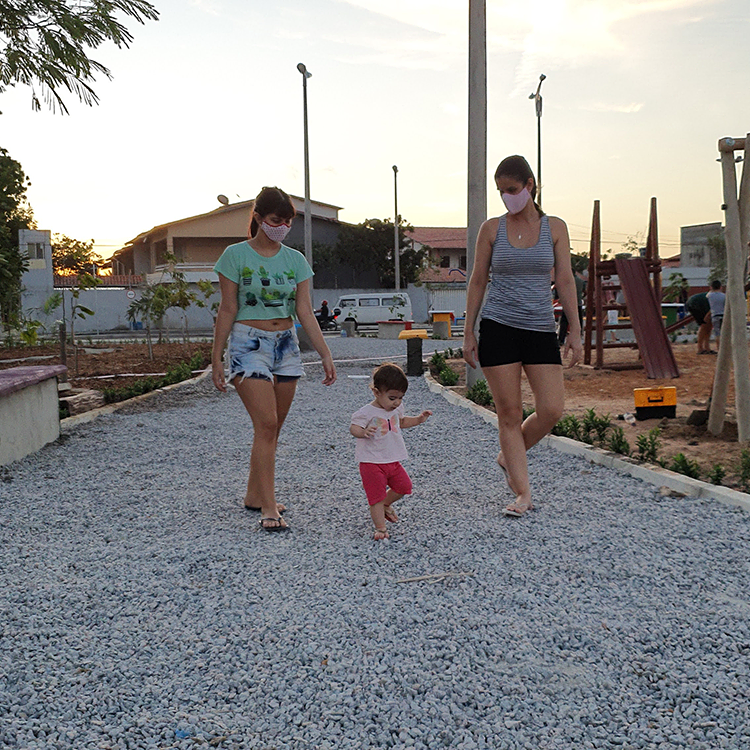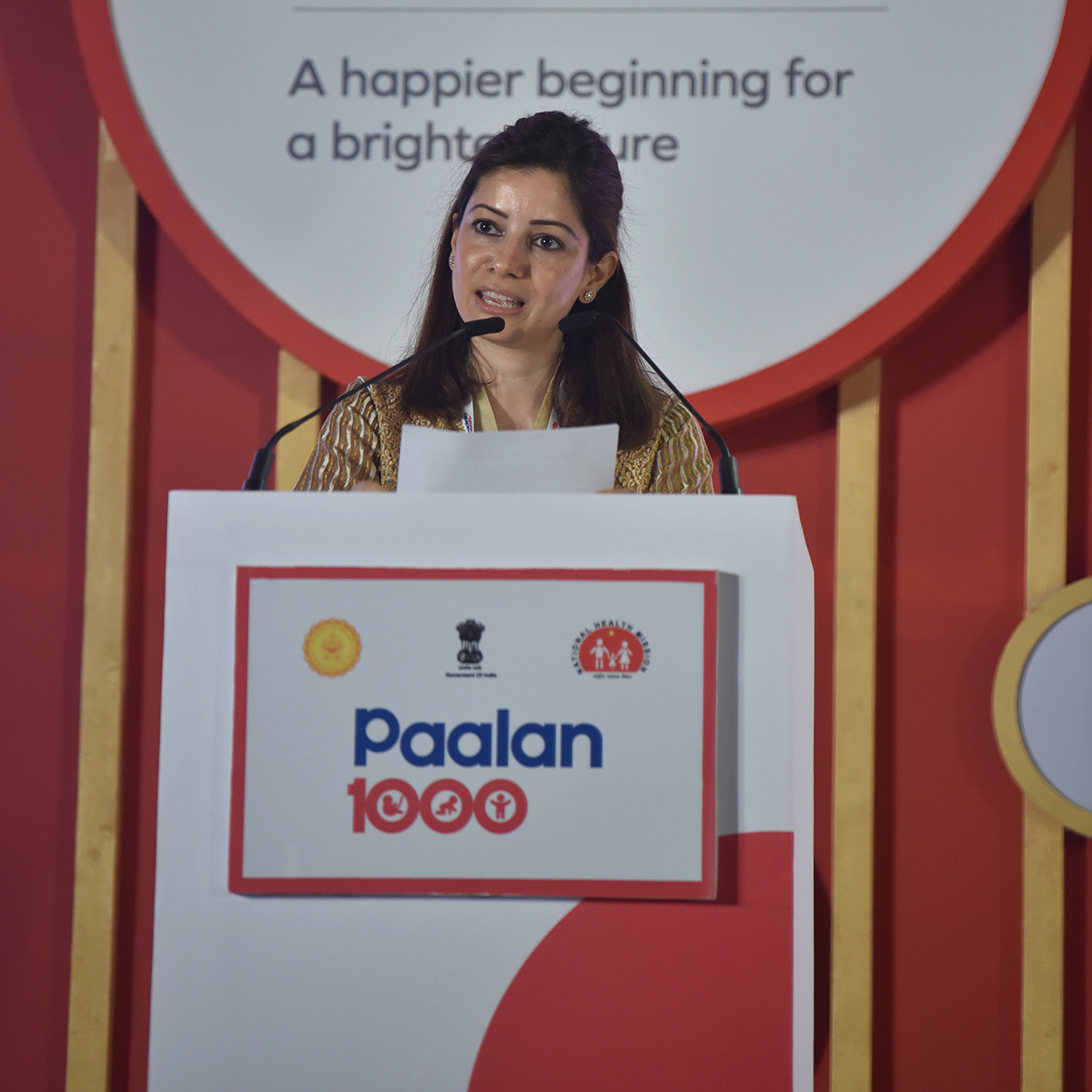On 23 May, the cheARIArespiro project – a winner of the Bernard van Leer Foundation’s Urban95 Challenge – will present findings and recommendations from our recent project in the Vanchiglia neighbourhood to the City Council in Turin. We will draw attention to the severity of the city’s challenge with air pollution: it is among the worst in Europe for pollution with PM10, particles under a hundredth of a millimetre.
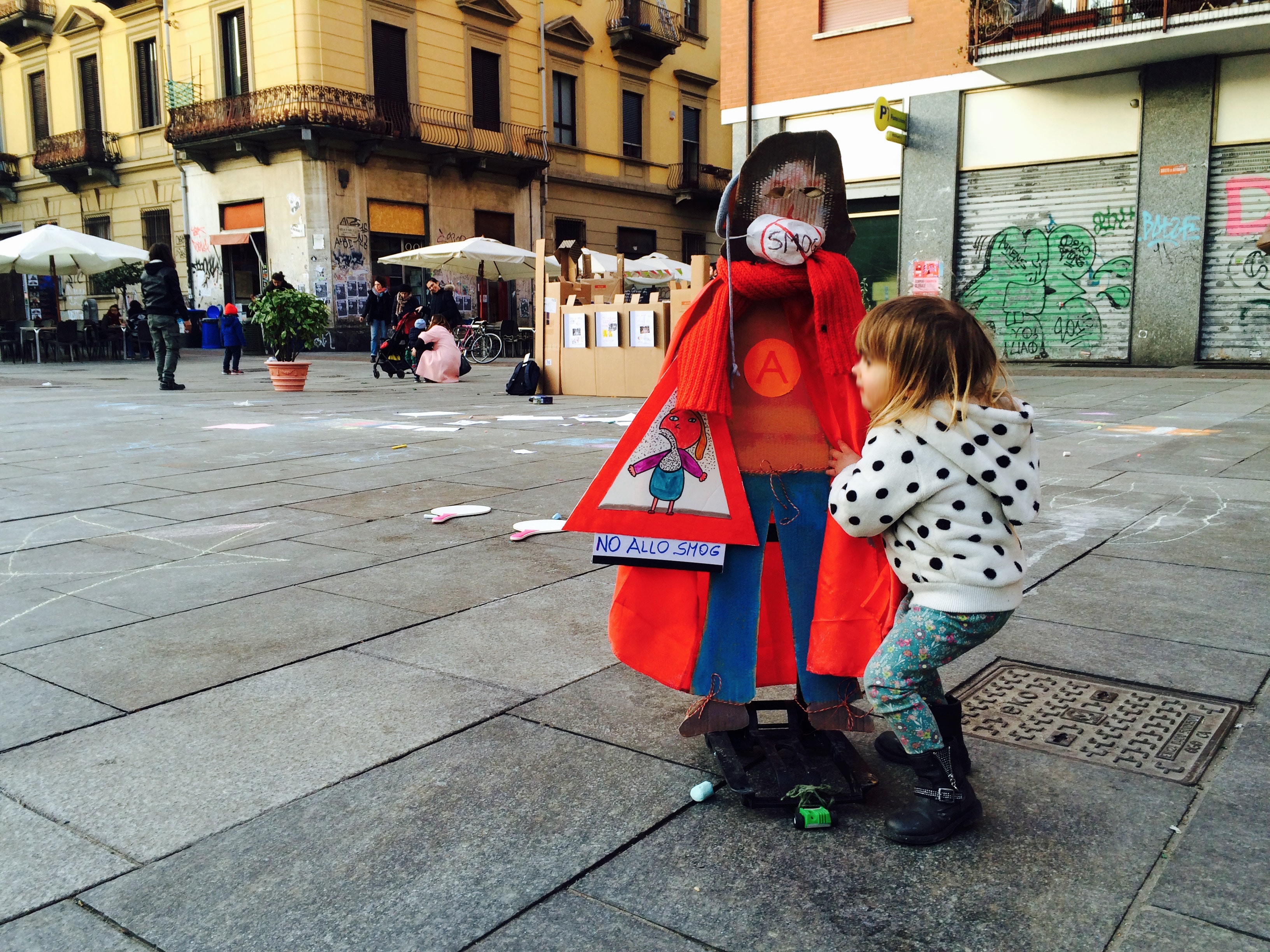
Air pollution is a serious issue for young children – including those still in the womb. Their lungs are more vulnerable than those of adults because they are still developing. And when being pushed in a stroller or toddling, they are breathing air that’s closer to vehicle exhaust level. Evidence is clear that air pollution is linked to a wide range of potentially lifelong disorders related to the respiratory, cardiovascular, reproductive and central nervous system, liver, spleen, blood and DNA.
The reasons for Turin’s low air quality are not hard to understand: at 650 cars per 1000 inhabitants, vehicle use is relatively high, while the public transport system is less developed than in other big European cities, and there is not much of a culture of getting around on foot or by bike. We have been working to change this through, for example, “bike pride” events and raising awareness by displaying children’s artworks on the subject on the neighbourhood streets.
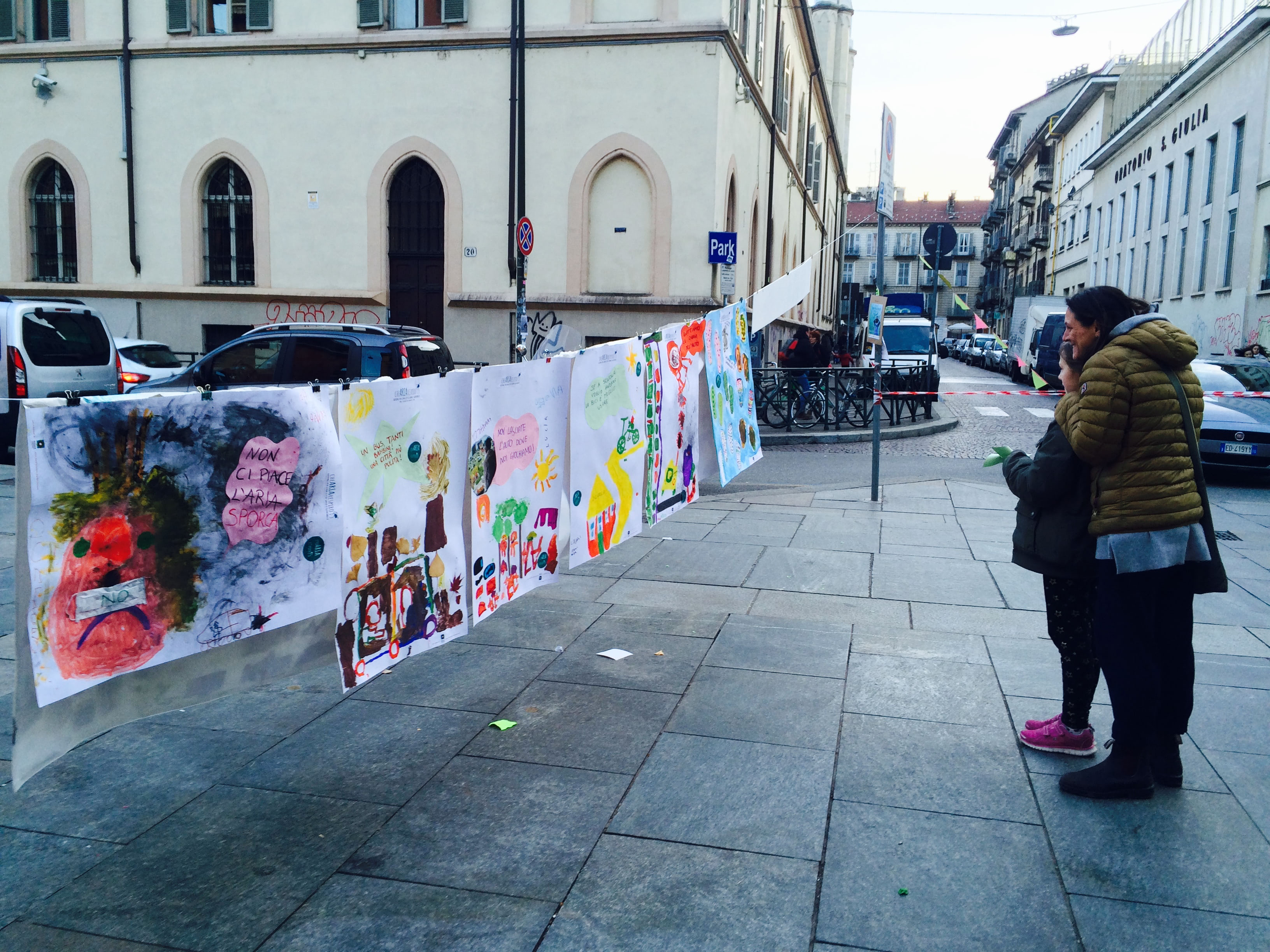
While individuals’ decisions about how to get around can add up to a collective shift in a city’s mobility culture, much depends on policy decisions from the local authorities. There are many ways they could encourage use of alternative transport options and discourage car use, especially in areas where children congregate. Among the proposals we will be making at our meeting this month is to limit car parking on roads around schools, widen their pavements and create “green fences”, safer paths and sharing spaces.
We will be arguing for the permanent pedestrianisation of key spaces in the city, following successful temporary experiments with pedestrianisation carried out as part of the project. With authorisation from the City Council and support from the police and volunteers, we closed spaces in our project neighbourhood to traffic, and organised events for families. It is important for building public support that city residents are able to experience these transformations first-hand, rather than trying to imagine what they might be like merely by looking at proposals.
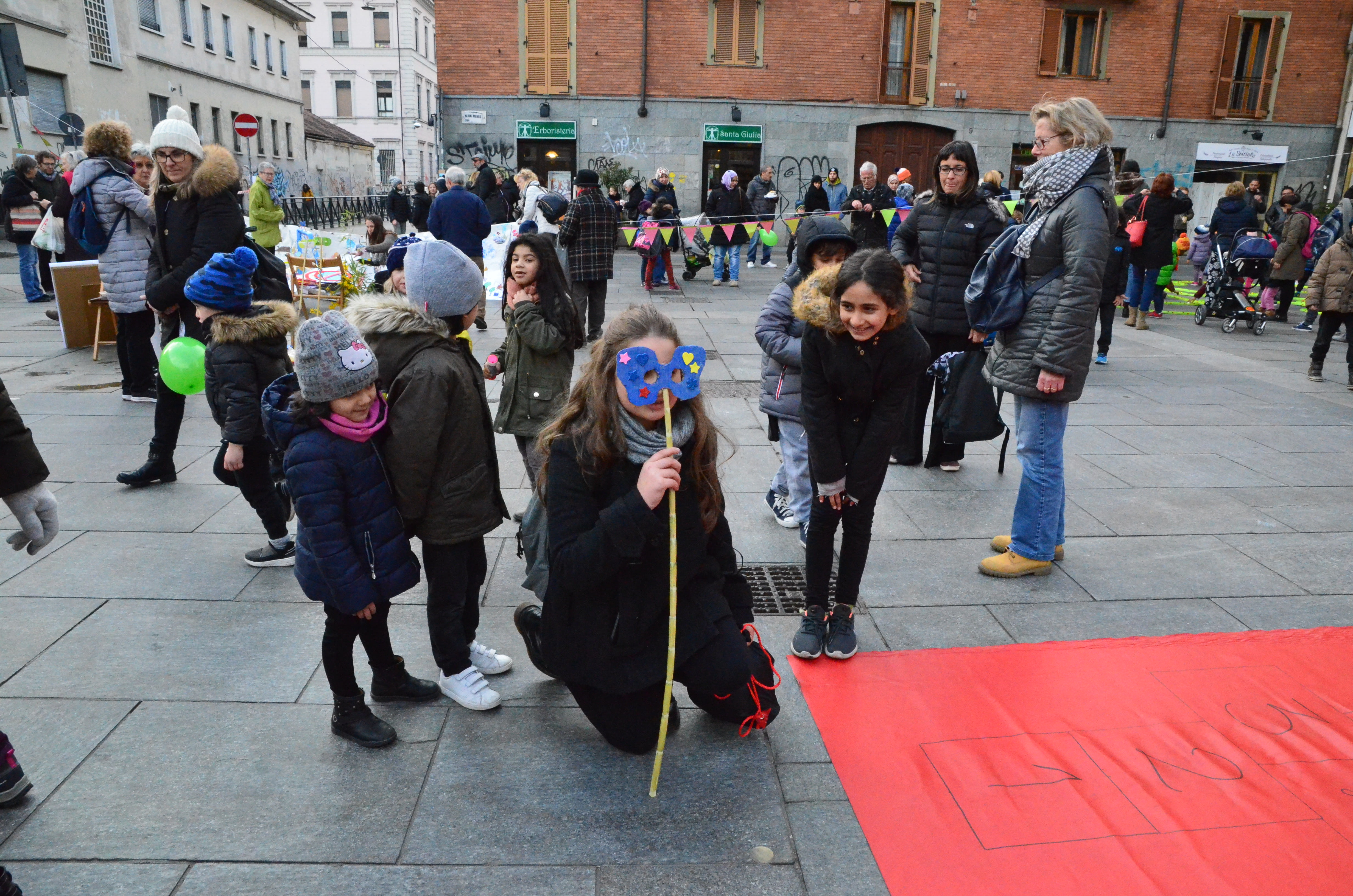
In the short term, one action that parents can take is to choose the least polluted routes in the city when moving around with their young children. To do this, they need to know what the pollution levels are on different streets. So our project has engaged local residents in a ‘citizen science’ monitoring campaign, using portable low-cost devices to sample the air and upload results to a website to be mapped. Not only does this help parents take decisions now, it increases awareness of the issue.
We would like the municipality to join us in consciousness building and participatory work across other districts in the city. Ideally, we would like to see the creation of a dedicated office responsible for children’s affairs, who – among other tasks – would take forward the actions started by this project to tackle air pollution.
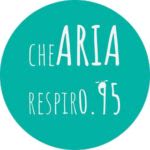 Author: The cheARIArespiro team are professionals in various fields related to urban sciences, the environment and childhood. They share a deep concern about pollution in their city, Turin, and believe that the ‘right to the city’ has to be ensured particularly for children. They gathered as a group to share their experiences and knowledge about critical issues in Turin in order to respond to the Bernard van Leer Foundation’s Urban 95 challenge. They are: Chiara Carlucci, architect: urban planning for and with children | Raffella Dispenza, architect: urban planning and participatory processes | Elisabetta Forni, sociologist: the urban child and the right to the city | Angela Nasso, architect: urban planning and participatory processes | Emanuele Negro, physicist: environment and sustainability | Mirjam Struppek, urbanist: sustainable public spaces transformation.
Author: The cheARIArespiro team are professionals in various fields related to urban sciences, the environment and childhood. They share a deep concern about pollution in their city, Turin, and believe that the ‘right to the city’ has to be ensured particularly for children. They gathered as a group to share their experiences and knowledge about critical issues in Turin in order to respond to the Bernard van Leer Foundation’s Urban 95 challenge. They are: Chiara Carlucci, architect: urban planning for and with children | Raffella Dispenza, architect: urban planning and participatory processes | Elisabetta Forni, sociologist: the urban child and the right to the city | Angela Nasso, architect: urban planning and participatory processes | Emanuele Negro, physicist: environment and sustainability | Mirjam Struppek, urbanist: sustainable public spaces transformation.
